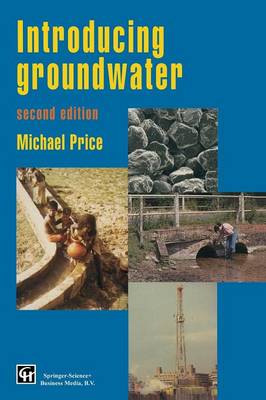You are about to embark on a stimulating intellectual journey touching on many fields of science as you begin the study of groundwater. You are fortunate to have such an understandable book that explains the complex concepts in such a manner that the ideas can be quickly grasped and long retained. You will soon understand answers to dozens of questions, such as: Where does the water in a well come from? Does underground water move like a river or is it more quiet like a lake? Is a drink from a well always cold? Is groundwater more pure than river water? How do springs form? Were there more springs in historic times than there are now, if so why? How do caves form? Why aren't they full of water? And the list goes on and on. The answers to such questions have been deduced from the application of principles from chemistry, physics, biology, geomorphology and other earth sciences. Now more than ever, it is important for the non-scientist to understand the principles of hydrogeology.
Groundwater is such an import- ant resource, and the behaviour and quality of groundwater ~ induding changes caused by contamination ~ can have such profound effects on the environment, that an understanding of it is a requisite for rational decisions concerning all resource management. A democracy requires that an in- formed public be able to identify options, choose alternatives and under- stand the consequences of its actions or non-action.
- ISBN10 0412485001
- ISBN13 9780412485008
- Publish Date September 1995 (first published 31 October 1985)
- Publish Status Active
- Out of Print 10 November 2014
- Publish Country GB
- Publisher Taylor & Francis Ltd
- Imprint Chapman and Hall
- Edition Softcover reprint of the original 2nd ed. 1996
- Format Paperback
- Pages 304
- Language English
